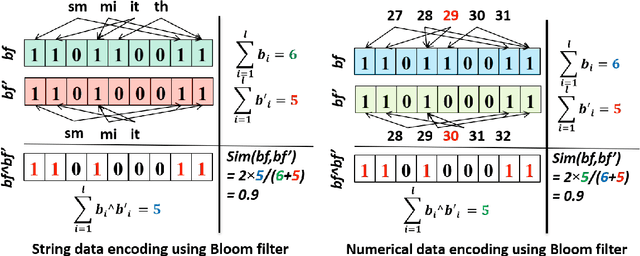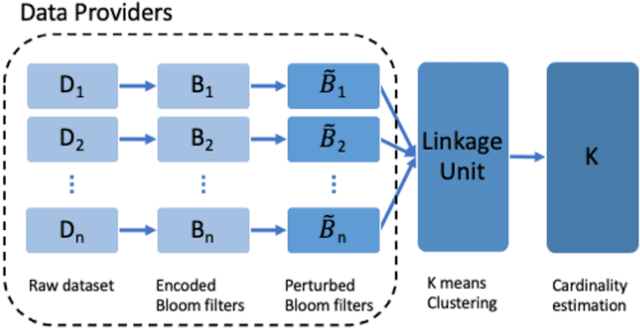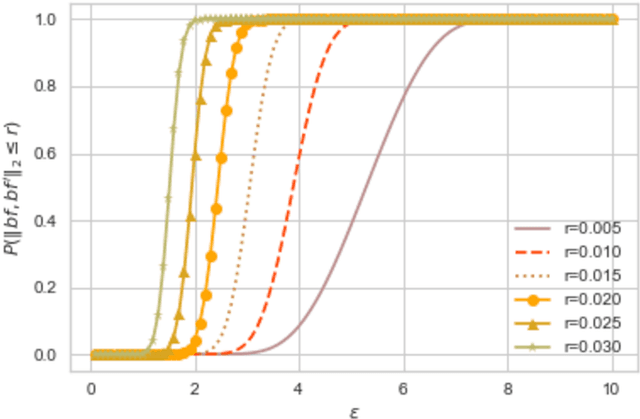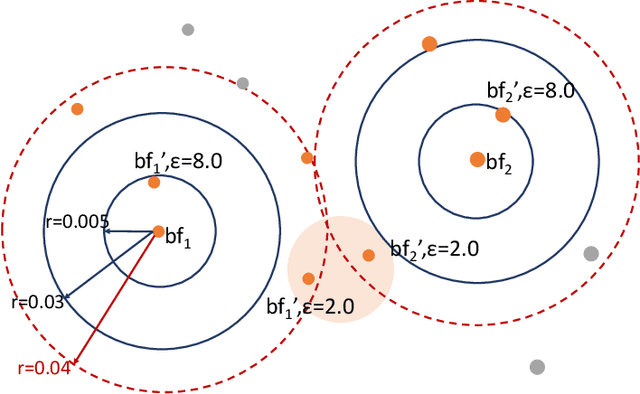Sanath Kumar Ramesh
Privacy-Preserving Record Linkage for Cardinality Counting
Jan 09, 2023



Abstract:Several applications require counting the number of distinct items in the data, which is known as the cardinality counting problem. Example applications include health applications such as rare disease patients counting for adequate awareness and funding, and counting the number of cases of a new disease for outbreak detection, marketing applications such as counting the visibility reached for a new product, and cybersecurity applications such as tracking the number of unique views of social media posts. The data needed for the counting is however often personal and sensitive, and need to be processed using privacy-preserving techniques. The quality of data in different databases, for example typos, errors and variations, poses additional challenges for accurate cardinality estimation. While privacy-preserving cardinality counting has gained much attention in the recent times and a few privacy-preserving algorithms have been developed for cardinality estimation, no work has so far been done on privacy-preserving cardinality counting using record linkage techniques with fuzzy matching and provable privacy guarantees. We propose a novel privacy-preserving record linkage algorithm using unsupervised clustering techniques to link and count the cardinality of individuals in multiple datasets without compromising their privacy or identity. In addition, existing Elbow methods to find the optimal number of clusters as the cardinality are far from accurate as they do not take into account the purity and completeness of generated clusters. We propose a novel method to find the optimal number of clusters in unsupervised learning. Our experimental results on real and synthetic datasets are highly promising in terms of significantly smaller error rate of less than 0.1 with a privacy budget {\epsilon} = 1.0 compared to the state-of-the-art fuzzy matching and clustering method.
 Add to Chrome
Add to Chrome Add to Firefox
Add to Firefox Add to Edge
Add to Edge